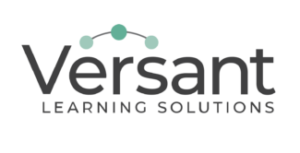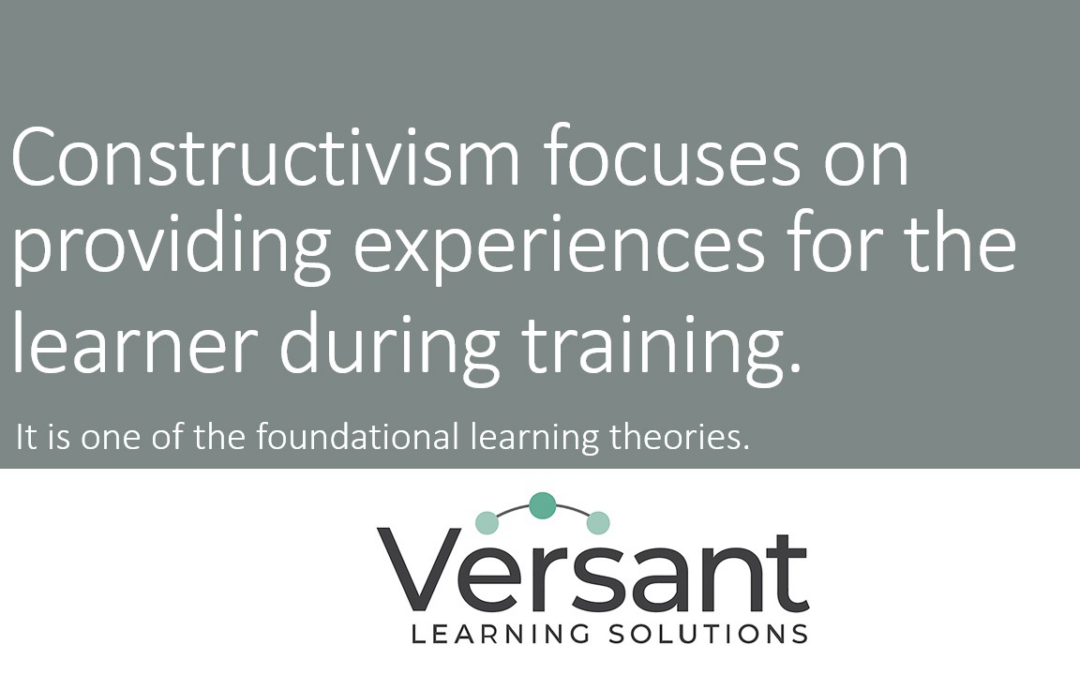Quick-Start Synopsis
Constructivism is a learning theory that proposes that learners do better with rich and interactive experiences. Think of activity stations, dissecting animals, or putting together a model of the Starship Enterprise.
Construct a Constructivism Schema
Proponents of Constructivism point out that creating experiences and interacting with the environment can build strong skills. Learning experiences should be realistic and meet learners where they are. Montessori education is a great example of this mindset. Ideally, the learner is directing the focus of the learning experience.
Another example: You can read many recipes, but real skill-building occurs when undertaking the recipe’s creation. Browning butter is a skill – and the home chef may not be successful on the first go.
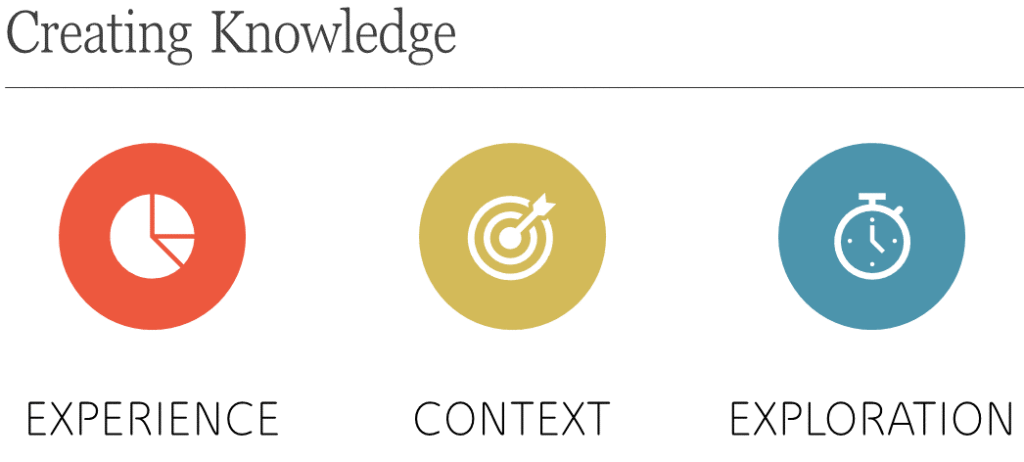
Adding to Prior Knowledge
Adult learners add new information to existing frameworks, a process called assimilation. Therefore, this theory makes more sense when a learner builds upon foundational knowledge rather than starting from scratch.
In the workplace, there are lots of opportunities to access prior knowledge when exposed to new information. Trainers can leverage the experiences and context of participants to bring depth to the discussion. Unfortunately, it can be difficult to define realistic exercises for learners in all learning situations, limiting utilization across all subjects.
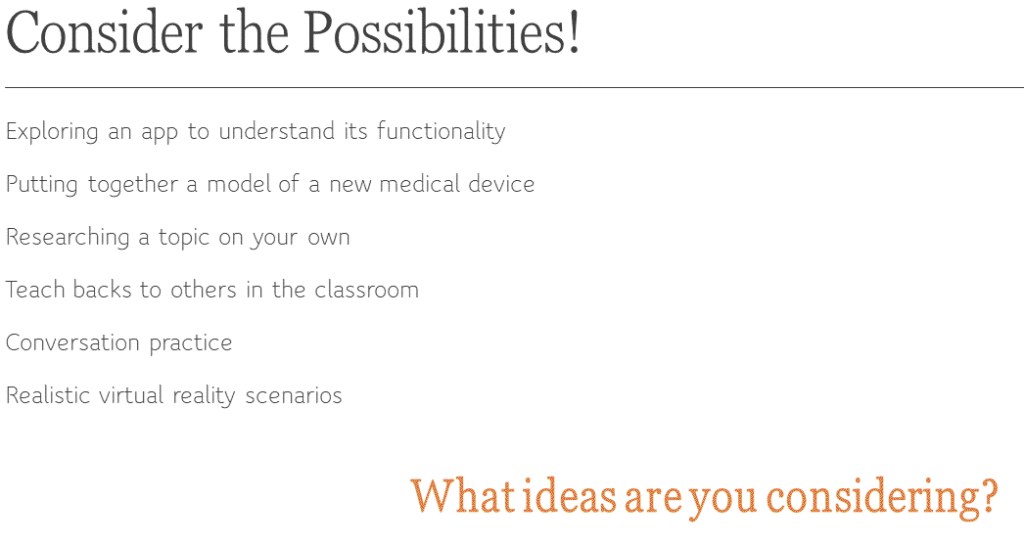
Provide Opportunities for Practice
Providing an opportunity for practice is key. Learners should try new skills in low-risk environments where they can fail as many times as necessary before using the skill in the real world. Consider how many times a pilot attempts a flight using a simulator or a how particular surgery is performed in virtual reality before the surgeon ever performs the procedure in real life.

The Future Possibilities of Instruction in the Workplace
To date, research results for Constructivism are mixed, perhaps reflecting the difficulty of crafting appropriate training activities for complex or abstract skills.
Putting it Together
Over the last few blog posts, you met Leah and Mehta. Leah Sci was a fan of a learning theory called Behaviorism(read post), and Mehta Cogni preferred a learning theory called Cognitivism (read post).
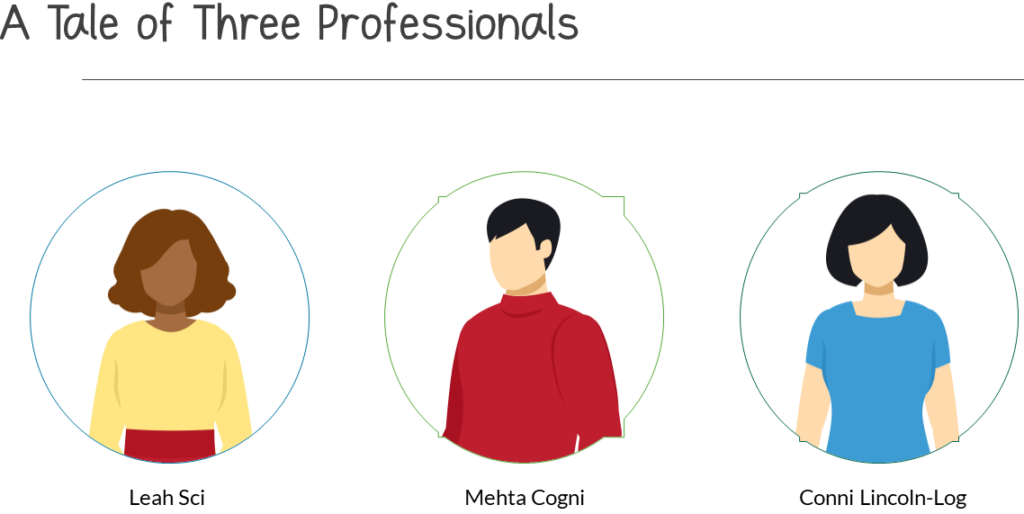
Today, we meet Connie Lincoln-Log. Connie loves adventure and new experiences and seeks them out in her personal life. She also wants to provide experiences to her students, so her training sessions are full of exercises, games, and activities.
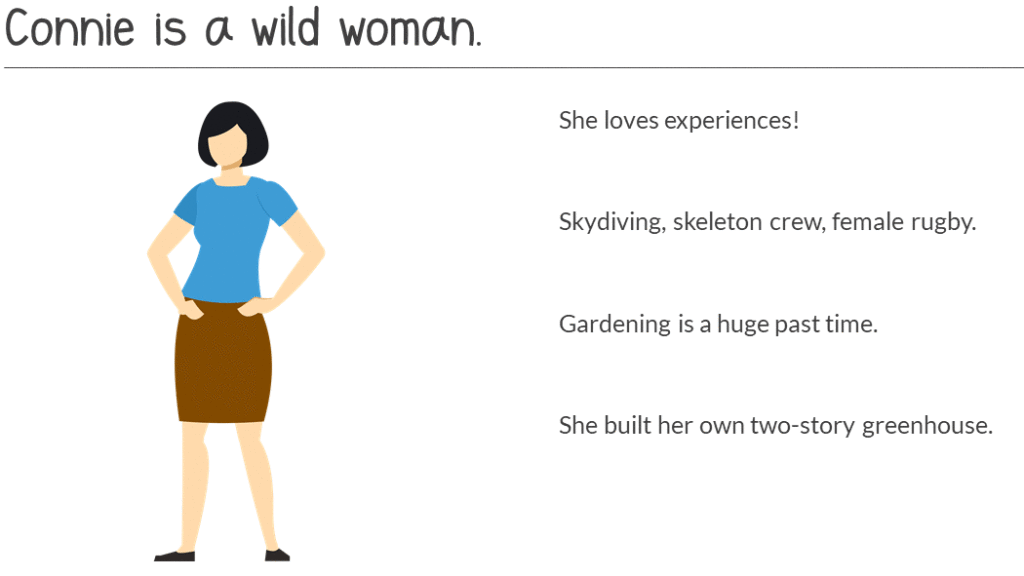
Learners, in Connie’s estimation, need to be active participants in the process of learning. In her workshops, Connie creates small groups based on their prior knowledge – in this case, years of experience.
In Connie’s class, small groups move through the learning space and experience different tasks and brain teasers at individual “discovery labs.” Some are light-hearted, but others are serious and require learners to consider situational context and make judgments where outcomes are immediately evident.
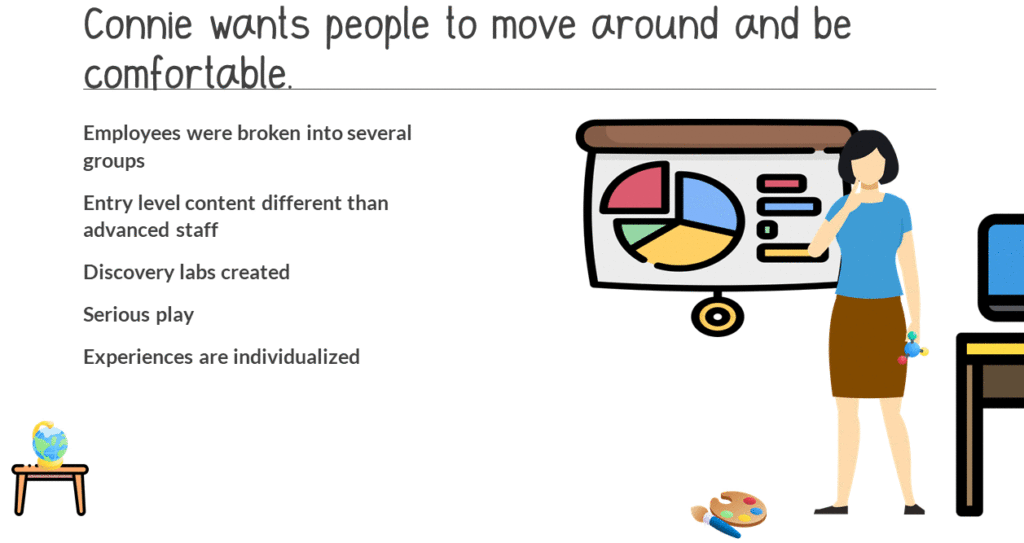
Learners are constantly active and participating in the training.
Connie uses practices aligned to the Constructivism mindset.
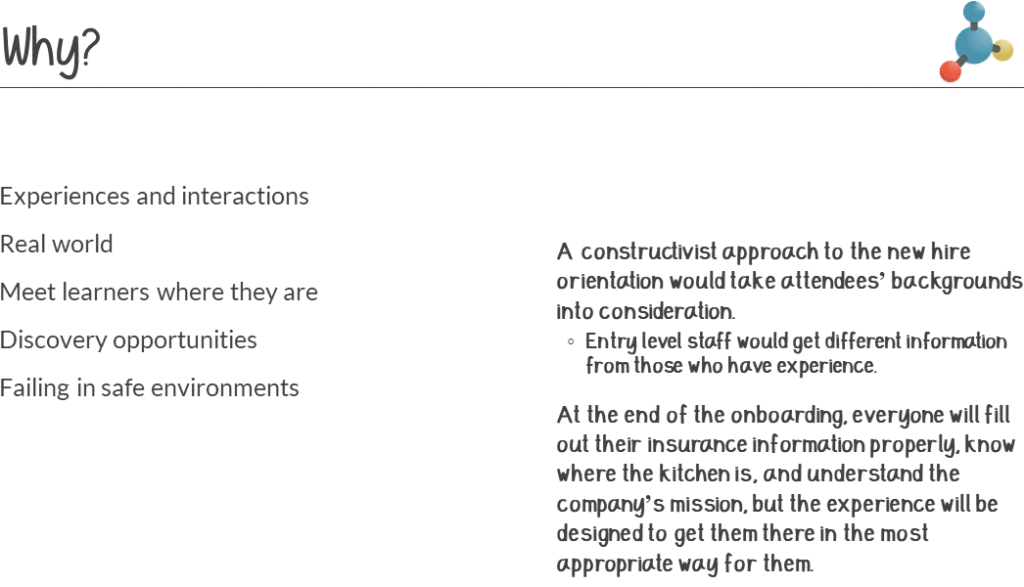
Proven Value for Medical Affairs
How does this relate to your Medical Affairs team? Consider a new MSL to the team. They are excited to get out in their territory to meet healthcare professionals but are new to the MSL role.
If the MSL had opportunities to practice how they will converse with a KOL in the field and hone their skill through safe practice, the manager could rest assured that their first KOL meetings will be successful.
Likewise, as new data come out from conferences and journal articles, providing MSLs with opportunities to engage with the content in realistic ways will increase their access to the information when they need the data.
Consider how to add in activities, serious play, and active elements in your team training and onboarding efforts.
Contact Us to Develop Your Strategy
We support Medical Affairs departments – large and small. If you would like to discuss your team’s situation, please contact us.
We would be happy to learn more about your situation and how we can support your efforts.
References
Liu, CC et al. Contemporary Issues in Education Research, 2010 April;3(4):63-66.
Bada SO. IOSR Journal of Research & Method in Education, 2015 December;5(6):66-70.
Duffy, TM and DH Jonassen. Constructivism and the Technology of Instruction: A Conversation. Routledge, 1992; 232 pages.
Young, Scott. Ultralearning. Harper Business, 2019. 305 pages.
Association for Talent Development (ATD), Talent Development Book of Knowledge (TDBoK). January 2020 ed. 2020, Alexandria, VA: Association for Talent Development.
